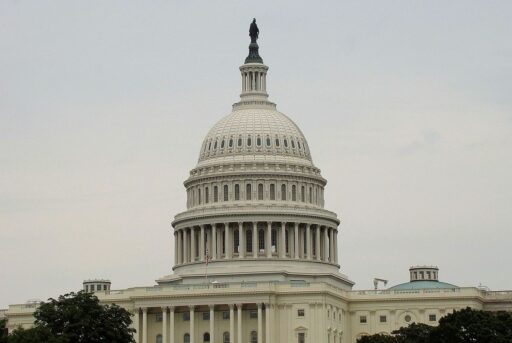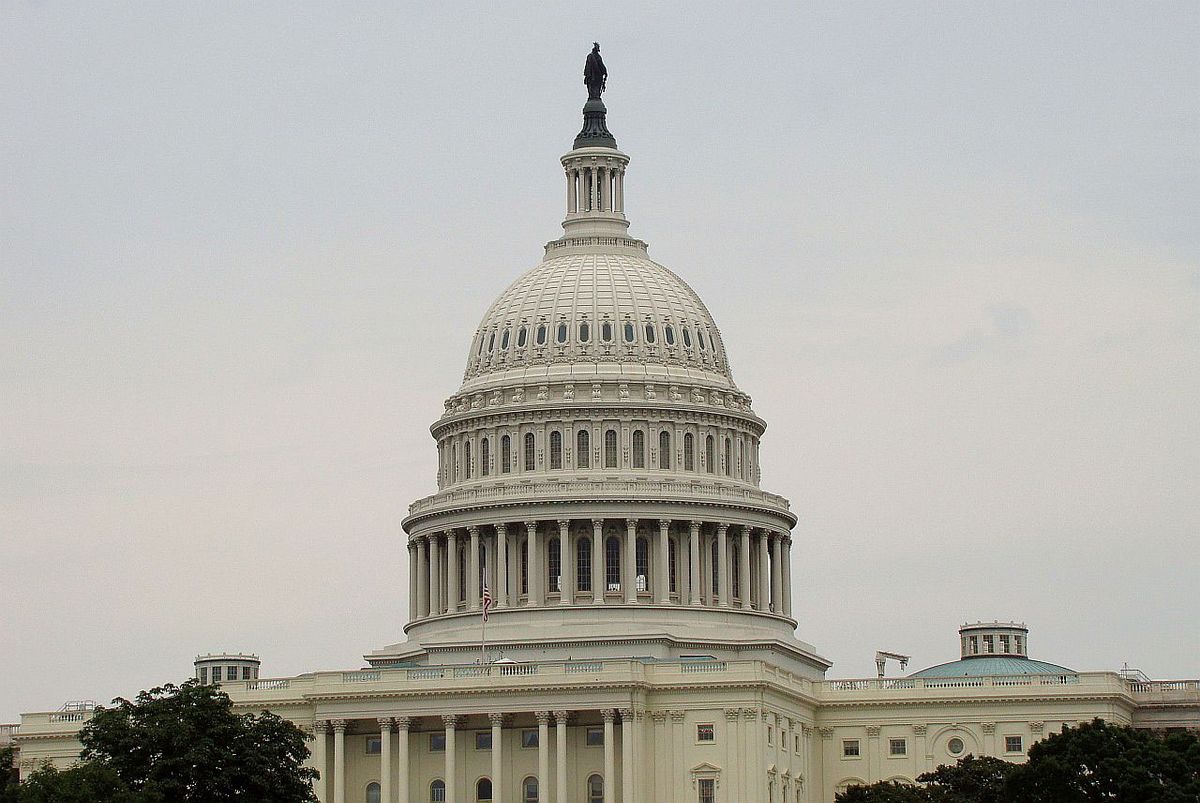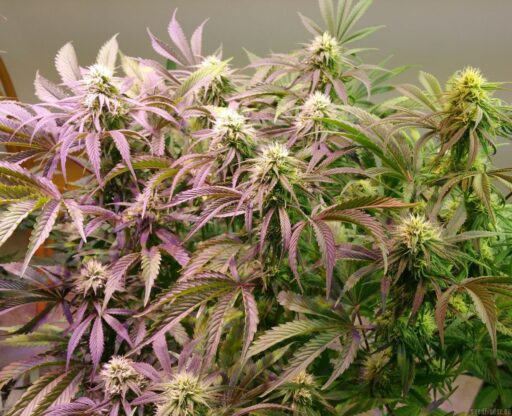The Federal Legalization of Marijuana marks a significant turning point in U.S. drug policy, reflecting years of evolving perspectives and legal battles. This article delves into the historical context, political dynamics, and the anticipated impacts of this policy shift on justice and future legislation. We’ll also address the challenges and criticisms that have emerged, as well as the potential paths forward in this new era of marijuana regulation.
Key Takeaways
- Despite past opposition, President Biden’s current stance on marijuana reform indicates a major shift in federal policy, acknowledging cannabis’s medical utility and lower abuse potential.
- Federal marijuana trafficking cases have significantly declined, illustrating a decade-long trend towards reduced federal enforcement and greater state-level autonomy.
- The contradiction between federal and state marijuana policies persists, highlighting the complex landscape of cannabis regulation and the need for comprehensive reform.
- Public opinion and political advocacy are increasingly influencing drug policy, with a strong push for expungement and record sealing to address past injustices.
- The future of marijuana legalization hinges on the actions of the DEA, HHS, and Congress, with the potential for Schedule III reclassification and more extensive reforms.
The Evolution of Federal Marijuana Policy

Historical Context of Marijuana Legislation
The journey of marijuana legislation in the United States has been complex and often contradictory. Marijuana’s classification has always been a political question, not a medical one, reflecting broader societal attitudes and power dynamics. The Controlled Substances Act (CSA) of 1970 classified marijuana as a Schedule I substance, indicating a high potential for abuse and no accepted medical use, placing it alongside drugs like heroin and LSD.
Despite this strict federal classification, states have taken varied approaches to marijuana policy. Nearly half of the states, including recent additions like Minnesota and Ohio, have legalized marijuana for recreational use, while a full 38 states have legalized its medicinal use. This patchwork of state laws stands in stark contrast to the federal government’s stance.
The evolving landscape of marijuana legislation underscores the tension between state initiatives and federal inertia. As states continue to reform their marijuana laws, the federal government remains anchored to an outdated model that equates cannabis with the most dangerous drugs.
The table below outlines key milestones in the evolution of marijuana policy in the United States:
| Year | Event |
|---|---|
| 1970 | Enactment of the Controlled Substances Act, classifying marijuana as Schedule I. |
| 1996 | California becomes the first state to legalize medical marijuana. |
| 2012 | Colorado and Washington become the first states to legalize recreational marijuana. |
| 2023 | Minnesota legalizes recreational marijuana, becoming the 23rd state to do so. |
Recent Trends in Federal Enforcement
In recent years, the landscape of federal enforcement against marijuana has markedly changed. Federal marijuana trafficking cases have seen a consistent decline, reflecting a broader shift in policy as states increasingly legalize cannabis for medical and recreational use. The USSC 2023 Sourcebook of Federal Sentencing Statistics highlights this trend, with a significant drop in prosecutions over the past decade.
Federal agencies have adapted to the evolving legal status of marijuana across various states. For instance, the Michigan HIDTA section reported concerns about the persistence of black market activities even after the state enacted adult-use cannabis legalization in 2018. This underscores the complex interplay between state legislation and federal enforcement efforts.
The focus of federal law enforcement has shifted towards more pressing drug-related issues, with marijuana often taking a backseat to the opioid crisis and other substance abuse problems.
The Department of Justice has also been active in shaping enforcement priorities. Before their summer recess, DOJ officials submitted recommendations to the U.S. Sentencing Commission, advocating for changes in drug sentencing policies, such as the EQUAL Act, which aims to address disparities in cocaine sentencing.
The Role of the DEA and HHS in Rescheduling Cannabis
The process of rescheduling cannabis at the federal level involves a critical interplay between the Drug Enforcement Administration (DEA) and the U.S. Department of Health and Human Services (HHS). The HHS is responsible for conducting a scientific and medical evaluation of cannabis, and then providing its findings to the DEA. The DEA, in turn, has the authority to reschedule the substance based on the HHS’s recommendations.
The rescheduling of marijuana is a complex and time-sensitive issue, with significant implications for federal drug policy and the legal landscape of cannabis use.
The recent push for rescheduling has seen the HHS recommend moving cannabis from Schedule I to Schedule III of the Controlled Substances Act (CSA). This move would acknowledge the medical utility of cannabis and potentially ease restrictions on research and taxation issues. However, the final decision rests with the DEA, and the timeline for such a change remains uncertain. Advocates and political figures are closely monitoring the situation, as the outcome will have far-reaching consequences for the industry and individuals alike.
Political Dynamics and Public Opinion

Biden’s Stance and Legislative Actions
President Joe Biden’s administration has shown a cautious approach to marijuana reform. Despite the growing bipartisan support for ending federal cannabis prohibition, Biden’s actions have been limited and have not fully aligned with his campaign promises. Advocates have expressed their dissatisfaction, pointing out that the administration has not taken significant steps towards legalization, which is a central issue for many voters.
While the administration has made some progress, such as pardoning individuals with prior federal offenses of simple marijuana possession, the efforts are seen as insufficient. Critics argue that without comprehensive reform, including the expungement of records and decriminalization of possession, the changes remain superficial.
The vice president’s private discussions on legalization and the administration’s cautious public stance reflect the complexity of federal drug policy reform. The lack of dramatic pivots on marijuana legislation continues to be a point of contention among reform advocates.
The table below summarizes the current state of Biden’s marijuana policy actions:
| Action | Description | Impact |
|---|---|---|
| Pardons | Limited to simple possession offenses | Symbolic gesture |
| Public Stance | Maintains opposition to federal legalization | Stagnant policy |
| Advocacy Response | Calls for more substantial reform | Ongoing debate |
Public Sentiment and State-Level Reforms
The landscape of marijuana legalization in the United States is rapidly evolving, with most Americans now living in a legal marijuana state. This shift reflects a broader change in public sentiment, as evidenced by the approval of legalization by 2 in 3 Maryland voters in 2022. However, opinions on the impact of this change are divided; a recent poll indicates that one-third of Marylanders believe it has been beneficial, while another third view it as negative, and the rest see no significant difference.
Party affiliation plays a significant role in these perceptions. Nearly half of registered Republicans in Maryland consider legalization to have had a detrimental effect, in contrast to a smaller proportion of Democrats and independents. This polarization suggests that while state-level reforms are advancing, consensus on the outcomes remains elusive.
The nuanced public opinion on marijuana legalization underscores the complexity of implementing policy changes that satisfy a diverse electorate.
The following table illustrates the varied sentiments towards marijuana legalization in Maryland based on party affiliation:
| Party Affiliation | View on Legalization’s Impact in Maryland |
|---|---|
| Republicans | 47% Negative |
| Democrats | 27% Negative |
| Independents | 24% Negative |
The Influence of Political Figures and Parties
The debate over federal marijuana legalization is deeply intertwined with the political landscape, where party affiliation plays a significant role in shaping opinions. For instance, a stark contrast in perception is evident from a recent poll in Maryland, where 47 percent of Republicans viewed legalization negatively, compared to only 27 percent of Democrats and 24 percent of independents.
The political tug-of-war is further highlighted by the actions of various political figures. While some Democratic leaders advocate for progressive drug policies, citing the failures of prohibition, others within the same party remain cautious, weighing the potential political costs. This dichotomy is not exclusive to Democrats; some Republicans have also shown support for reform, albeit to a lesser extent.
The political narrative surrounding marijuana legalization is not just about public health or criminal justice; it’s a strategic play within the chessboard of U.S. politics, with each move calculated to align with or sway voter sentiment.
The upcoming elections could see marijuana policy as a pivotal issue, with Vice President Harris being positioned as the face of the administration’s stance. This strategic decision may benefit both the President and Vice President, as polls suggest a boost in favorability when voters are informed of potential cannabis rescheduling initiatives.
Implications for Justice and Sentencing

Impact on Federal Marijuana Trafficking Cases
The landscape of federal marijuana trafficking cases is undergoing a significant transformation. Federal marijuana trafficking cases have seen a consistent decline over the past decade, with the USSC 2023 Sourcebook of Federal Sentencing Statistics highlighting a continued decrease in 2023. This trend aligns with the broader movement of state-level legalization and evolving federal enforcement priorities.
The shift in federal policy reflects a growing recognition of the changing public sentiment towards marijuana. As states provide safe, regulated access to cannabis, there is a notable reduction in illicit interstate commerce, with consumers opting for state-regulated products over illegal alternatives.
The potential rescheduling of marijuana could further influence federal sentencing, with the possibility of changes to 21 USC
§ 841 regarding punishment for marijuana-related offenses. The timeline for rescheduling remains uncertain, but its impact on federal cases could be profound.
- Decline in federal prosecutions since 2013
- States’ legalization efforts reducing illicit interstate commerce
- Anticipated changes in federal sentencing post-rescheduling
Sentencing Statistics and Their Significance
The landscape of federal marijuana sentencing has undergone significant changes over the past decade. Federal marijuana trafficking cases have seen a consistent decline, reflecting a broader shift in drug policy and enforcement priorities. In 2013, there were approximately 5,000 cannabis-related prosecutions, but by 2023, this number had dropped to under 2,000 cases.
| Year | Cannabis-Related Prosecutions |
|---|---|
| 2013 | 5,000 |
| 2023 | <2,000 |
This trend is indicative of the evolving attitudes towards marijuana at both the federal and state levels. As more states move towards legalization, the federal stance has also softened, leading to fewer prosecutions and a reevaluation of sentencing practices.
The Department of Justice’s recent comments to the U.S. Sentencing Commission highlight the ongoing discussion about drug sentencing reform, particularly concerning the disparity in treatment between powder cocaine and crack cocaine. The push for legislative changes, such as the EQUAL Act, underscores the significance of these statistics as a catalyst for broader reform efforts.
The Push for Expungement and Record Sealing
The federal legalization of marijuana has ignited a nationwide push for the expungement and sealing of criminal records related to cannabis offenses. The distinction between a presidential pardon and the expungement of records is critical, as the former does not erase the conviction from one’s history. This has led to confusion and potential legal complications for those who have been pardoned but still carry the burden of a criminal record.
- Presidential pardons have symbolically forgiven convictions but have not cleared criminal records.
- Pardons do not affect individuals currently serving sentences for offenses beyond simple possession.
- State-level initiatives are emerging to address the gaps left by federal action.
The need for clear and accessible pathways to expungement is evident, as the current system leaves many with lingering legal obstacles despite changes in policy.
The debate continues over the extent of the Biden administration’s pardons, with advocacy groups calling for more comprehensive measures. The conversation around expungement and record sealing is not just about correcting past injustices; it’s about paving the way for those affected to fully participate in society without the stigma of a criminal record.
Challenges and Criticisms of the Shift

Contradictions in Federal vs. State Policies
The landscape of marijuana legislation in the United States is a patchwork of conflicting laws and regulations. Federal law and state law can contradict each other, leading to a complex legal environment for individuals and businesses. For instance, while federal law continues to classify marijuana as an illegal substance, many states have legalized it for medical or recreational use.
The tension between federal and state policies creates uncertainty, especially for state-licensed cannabis businesses. These entities operate legally within their state boundaries but remain at risk of federal enforcement actions. Plaintiffs in recent lawsuits argue that the federal government’s stance is increasingly untenable, given the widespread state-level legalization and the government’s own tolerance of commercial cannabis activity in legal jurisdictions.
The federal ban on marijuana, which once had a clear purpose, is now being scrutinized for its constitutionality, especially when it comes to intrastate activities that do not cross state lines and therefore may not fall under the purview of the Commerce Clause.
The following table illustrates the dichotomy between federal and state marijuana policies in selected states:
| State | Medical Marijuana | Recreational Marijuana | Federal Classification |
|---|---|---|---|
| State A | Legal | Legal | Illegal |
| State B | Legal | Illegal | Illegal |
| State C | Illegal | Illegal | Illegal |
This table underscores the inconsistencies that can arise, with some states allowing both medical and recreational use, while others may allow one, neither, or both, despite the overarching federal prohibition.
Advocacy Groups and Their Demands for Reform
Advocacy groups have been vocal in their demands for reforming federal marijuana policies, with a focus on addressing sentencing disparities and promoting individual liberties. Americans For Tax Reform, a right-of-center organization, recently urged Congress to pass the EQUAL Act, highlighting the unjustified disparity in crack/powder cocaine sentencing. They argue that the criminal justice system should be efficient and effective while respecting constitutional rights.
Advocacy efforts emphasize the need for a criminal justice system that not only upholds public safety and the rule of law but also ensures the protection of individual liberties and taxpayer interests.
The push for reform is not limited to progressive circles; it has found support across the political spectrum. For instance, Sen Charles Grassley (R-IA), a ranking Republican on the Committee, has co-sponsored several reform measures, including the notable First Step Act. However, despite bipartisan efforts, challenges remain, as evidenced by the stalled progress of the EQUAL Act in the previous Congress due to disagreements over sentencing ratios and retroactivity provisions.
Analysis of Biden’s Reform as Inadequate
Despite the administration’s claims of significant progress in marijuana reform, a closer examination reveals a gap between rhetoric and reality. Critics argue that President Biden’s actions have not matched his campaign promises, particularly regarding the decriminalization of marijuana use and the expungement of related criminal records. Advocates and policy experts express disappointment, pointing out that the changes made are far from the comprehensive legalization desired by voters.
The following points highlight the perceived inadequacies in the current reform efforts:
- Biden’s reluctance to fully embrace legalization, despite its popularity among young voters and its potential to motivate this key demographic.
- The absence of any substantial action to release individuals from prison or expunge criminal records related to marijuana, as was pledged during the campaign.
- The ongoing contradiction between federal and state marijuana policies, which continues to create legal and social complexities.
The gap between the administration’s promises and the actual policy implementations suggests a cautious approach that falls short of the transformative change many had hoped for.
The table below summarizes the key criticisms of Biden’s marijuana reform:
| Aspect of Reform | Promised Action | Delivered Action |
|---|---|---|
| Decriminalization | Pledge to decriminalize | No significant change |
| Expungement | Pledge to expunge records | No records expunged |
| Legalization | Support for state-level reforms | Federal policy remains unchanged |
The Future of Marijuana Legalization

Potential Outcomes of DEA Rescheduling
The rescheduling of marijuana by the DEA, as recommended by the HHS, could lead to a significant shift in federal drug policy. A move from Schedule I to Schedule III, for instance, would not legalize marijuana federally but would ease restrictions on medical research and reduce the tax burden on state-licensed suppliers. This could have a ripple effect on various aspects of the industry and law enforcement.
- Facilitation of medical research: Easier access to cannabis for scientific studies.
- Tax implications: Alleviation of tax issues under Section 280E for cannabis businesses.
- Sentencing and punishment: Potential changes to 21 USC § 841 regarding penalties.
While the rescheduling would not permit interstate commerce or fully legalize the plant, it represents a step towards reconciling federal and state policies on marijuana.
Despite the potential benefits, there is resistance within the DEA, with some officials questioning the safety profile and medical potential of marijuana. This internal debate highlights the complexity of drug policy reform and the challenges that lie ahead in achieving a consensus.
The Role of Congress in Shaping Drug Policy
The United States Congress stands at a hair’s breadth from being able to control the trajectory of drug reform legislation, particularly with regard to marijuana. The legislative body plays a pivotal role in the potential rescheduling or descheduling of cannabis, which could fundamentally alter the landscape of federal drug policy.
Recent legislative activities suggest a growing willingness to address drug policy reform. For instance, Maryland Senators approved a Psychedelics Task Force Bill, while Hawaii and New Hampshire are actively working on marijuana legalization measures. These actions reflect a broader trend of states taking the initiative to regulate marijuana, challenging the federal government’s stance.
The shifting dynamics in Congress, coupled with increasing state-level reforms, indicate a significant transformation in the approach to drug policy in the United States.
Looking ahead, health policy issues to watch in Congress include prescription drug prices, Medicare telehealth, access to care, and behavioral health. These topics, while not exclusively related to marijuana, will influence the broader context within which drug policy reform is considered.
Prospects for Comprehensive Marijuana Reform
As the public support for cannabis legalization reaches new heights, the prospects for comprehensive marijuana reform become increasingly tangible. With the 2023 statistics showing a significant portion of Americans living in areas with legal cannabis dispensaries, the pressure on federal legislators to align with public sentiment is mounting.
- Public Support: All-time high in 2023
- State-Level Reforms: Continued legalization and reform
- Federal Action: Potential for significant policy changes
The cannabis industry, looking back at 2023, anticipates further advancements in 2024. The dialogue surrounding marijuana reform has shifted from if to when, with many stakeholders pushing for a more robust federal response. The Drug Policy Alliance and other advocacy groups are vocal in their demands, highlighting the need for not just decriminalization but also expungement of past convictions.
The path to comprehensive marijuana reform is complex, yet the convergence of public opinion, political will, and advocacy efforts suggests that change is on the horizon. The industry and its supporters are poised to continue this momentum, advocating for policies that reflect the evolving views of the electorate.
Conclusion
The trajectory of federal marijuana policy in the United States is undeniably toward a more lenient and rational approach. The shift from a stringent, punitive stance to one that acknowledges the medical utility of cannabis and respects state-level reforms is a clear indicator of changing societal norms and political pressures. Despite President Biden’s historical ambivalence on cannabis reform, recent developments suggest a potential alignment with public sentiment and a reduction in federal interference. The decline in federal marijuana trafficking cases, alongside advocacy for more progressive legislation, underscores a landmark shift in U.S. drug policy. This evolution reflects a growing consensus that the criminalization of marijuana is out of step with contemporary views and scientific understanding. As the nation watches the unfolding policy changes, it is evident that the federal government’s approach to marijuana is poised for transformation, signaling a new era in the long and complex history of drug regulation in America.
Frequently Asked Questions
What has been the historical stance of President Biden on marijuana reform?
While President Biden has recently promoted marijuana reform, historically as a senator, he championed legislation that increased the war on drugs. His current support for the DEA’s potential rescheduling of cannabis to Schedule III marks a significant shift in his stance.
What would the DEA rescheduling cannabis to Schedule III imply?
If the DEA reschedules cannabis to Schedule III, it would indicate a major change in federal marijuana policy, recognizing that cannabis has a lower potential for abuse and some accepted medical use.
How has federal enforcement of marijuana trafficking changed in recent years?
Federal marijuana trafficking cases have significantly declined, continuing a decade-long downtrend. This reflects the changing enforcement priorities and the impact of state-level legalization.
What are the implications of the current federal marijuana policy on sentencing and justice?
The evolving federal stance on marijuana has led to a decrease in federal trafficking cases and has raised discussions on the need for expungement and record sealing to correct past injustices in sentencing.
What are the criticisms of the current federal approach to marijuana policy?
Critics argue that the federal government’s approach is inconsistent and lacks a comprehensive strategy. They also point out contradictions between federal and state policies and call for more substantial reform.
What role does public opinion play in the federal legalization of marijuana?
Public sentiment has increasingly favored marijuana legalization, influencing state-level reforms and putting pressure on federal policymakers to align with the views of the majority of Americans.





